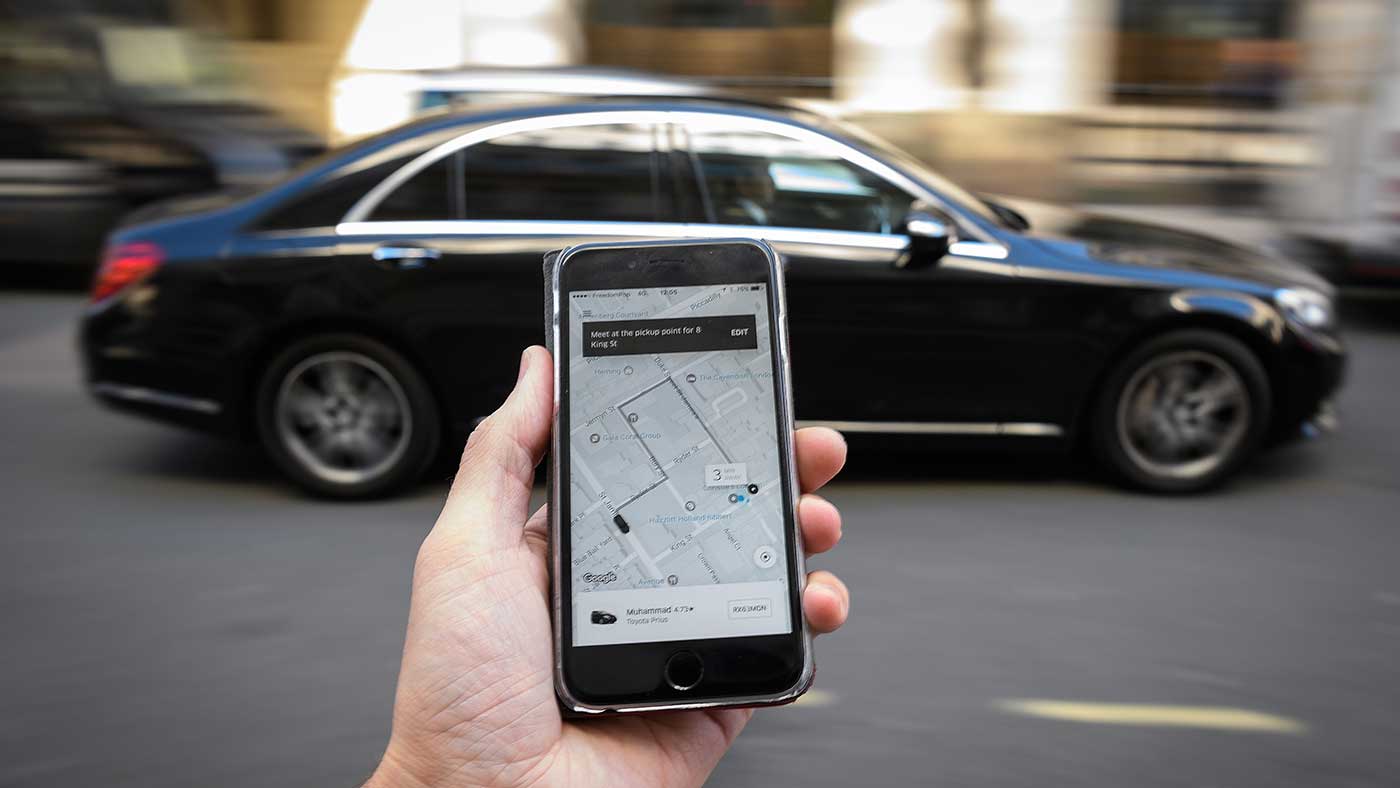ECJ’s Uber ruling has widespread implications for gig economy
Europe’s top court rules Uber is a taxi service rather than an app

A free daily email with the biggest news stories of the day – and the best features from TheWeek.com
You are now subscribed
Your newsletter sign-up was successful
Uber is a taxi service that must comply with national laws, the European Court of Justice decided today in a ruling that has major implications for the wider gig economy across the 28-member EU bloc.
The court challenge was brought by a Barcelona taxi drivers’ group, which argued that Uber was directly involved in carrying passengers. Uber’s lawyers insisted the company was a “computer services business” and should therefore be subject to an EU directive governing e-commerce.
“This classification has helped shield the multibillion-dollar company from obtrusive national regulation where it is treated as a digital service subject to fewer rules when operating across borders in the EU’s single market,” reports the Financial Times.
The Week
Escape your echo chamber. Get the facts behind the news, plus analysis from multiple perspectives.

Sign up for The Week's Free Newsletters
From our morning news briefing to a weekly Good News Newsletter, get the best of The Week delivered directly to your inbox.
From our morning news briefing to a weekly Good News Newsletter, get the best of The Week delivered directly to your inbox.
But the ECJ has ruled that since the US firm connects individuals with non-professional drivers in Europe, it should be covered by services in the field of transport.
That means Uber should be regulated like a taxi company, not a tech company, says Channel 4 News economics correspondent Helia Ebrahimi.
“It’s the first ruling by the bloc’s court on how an app such as Uber should be qualified and it has been closely watched by the technology industry, because it could set a precedent for how firms in the burgeoning gig economy are regulated across the 28-nation bloc,” Bloomberg says.
Uber said the ruling “will not change things in most EU countries where we already operate under transportation law”.
A free daily email with the biggest news stories of the day – and the best features from TheWeek.com
However, BBC business correspondent Dominic O’Connell says there are larger implications for the company around the world, “because what Europe does on regulation often tends to be followed by other countries, and also for the whole gig economy because it means that Europe is taking quite a dim view of this idea of companies simply being information services or platforms. They are saying they are actually real operators.”
Professor Andre Spicer, of London’s Cass Business School, told BBC Radio Four’s Today programme that the court has made it clear that Uber is “not a ride-hailing app, it is a transport company”. The ruling could have implications for companies such as Google, Facebook and other tech companies offering services in Europe, he added.
“I don’t click on the app and say I want an information-sharing platform - I want a ride,” Spicer said.
-
 6 of the world’s most accessible destinations
6 of the world’s most accessible destinationsThe Week Recommends Experience all of Berlin, Singapore and Sydney
-
 How the FCC’s ‘equal time’ rule works
How the FCC’s ‘equal time’ rule worksIn the Spotlight The law is at the heart of the Colbert-CBS conflict
-
 What is the endgame in the DHS shutdown?
What is the endgame in the DHS shutdown?Today’s Big Question Democrats want to rein in ICE’s immigration crackdown
-
 Epstein files topple law CEO, roil UK government
Epstein files topple law CEO, roil UK governmentSpeed Read Peter Mandelson, Britain’s former ambassador to the US, is caught up in the scandal
-
 Iran and US prepare to meet after skirmishes
Iran and US prepare to meet after skirmishesSpeed Read The incident comes amid heightened tensions in the Middle East
-
 Israel retrieves final hostage’s body from Gaza
Israel retrieves final hostage’s body from GazaSpeed Read The 24-year-old police officer was killed during the initial Hamas attack
-
 China’s Xi targets top general in growing purge
China’s Xi targets top general in growing purgeSpeed Read Zhang Youxia is being investigated over ‘grave violations’ of the law
-
 Panama and Canada are negotiating over a crucial copper mine
Panama and Canada are negotiating over a crucial copper mineIn the Spotlight Panama is set to make a final decision on the mine this summer
-
 The app that checks if you are dead
The app that checks if you are deadIn The Spotlight Viral app cashing in on number of people living alone in China
-
 Why Greenland’s natural resources are nearly impossible to mine
Why Greenland’s natural resources are nearly impossible to mineThe Explainer The country’s natural landscape makes the task extremely difficult
-
 Iran cuts internet as protests escalate
Iran cuts internet as protests escalateSpeed Reada Government buildings across the country have been set on fire